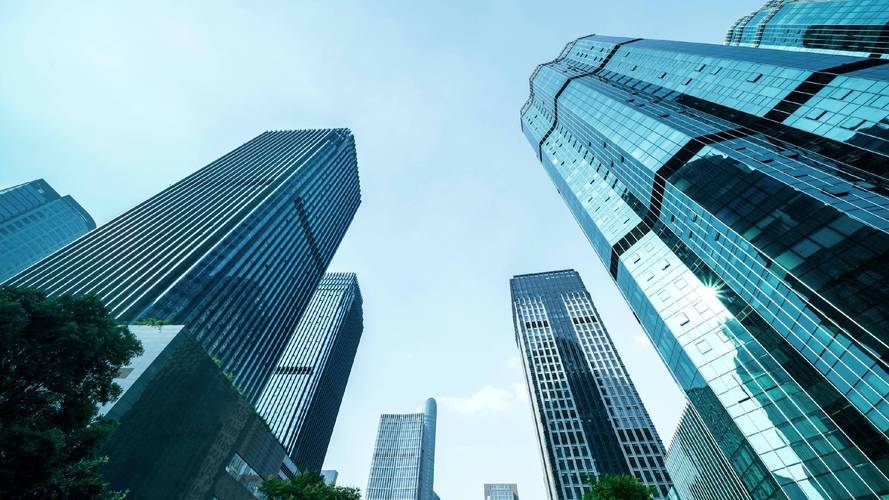Important news
Huang Qifan: Several judgments on real estate in 2025
(Source: Liuli Investment News)

Huang Qifan:
The key to China's economic breakthrough is to "resolve problems through reform"!
The Chinese economy is currently facing at least four or five problems.
First, there is the urban-rural gap, which is quite serious.
Second, there is local government debt.
The heavy debt of 6.5 trillion yuan has made it difficult for local governments to contribute and the burden is too heavy.
Third, China's capital market has been hovering around 3,000 points for more than 20 years, which is quite sluggish.
It does not reflect the function of being a barometer of the national economy, the function of optimizing resource allocation, or the function of enabling common prosperity for the people, so there are also problems with the capital market.
Fourth, China’s real estate sector is also facing a serious downturn, or major structural adjustment issues.
These problems should be reorganized and restructured with a reform approach to resolve them.
Judgment 1
This round of adjustment is the most serious in 20 years
But the real estate industry has been booming for 20 years, so this adjustment is normal
The thing related to "using reform to resolve problems" is real estate.
After more than 20 years of development, China's real estate has undergone major adjustments in the past four years, from 2021 to 2024. If you calculate this adjustment based on the annual indicators, it is a few points or even 10 points each year, and you can't tell how much it has fallen overall.
If you compare last year's indicators with those of 2020, you will know how big the decline is in four years.
When talking about real estate, five indicators are generally mentioned.
The first indicator is that real estate includes both residential and non-residential buildings. The total construction volume of real estate was 2.2 billion square meters in 2020. The total 12-month data for 2024 has not yet been released. Based on the data of the first 11 months and one more month, it is estimated to be more than 600 million square meters. From 2.2 billion to more than 600 million, it has dropped by more than 60%, or almost 65%.
Just imagine, it was originally 2.2 billion, and now it is 600-700 million, a drop of 65%. This is a serious drop.
Second, in addition to building houses, the sales of completed houses, first-hand houses, sold 1.8 billion square meters in 2020, compared with 500 million square meters last year, a drop of almost 60%.
These are two 60% groups.
The third is the amount of land leased.
In 2020, the national land lease amounted to 8.7 trillion yuan, and it is expected to be 3 trillion yuan in 2024, which is still relatively optimistic. The land lease amount from January to October was actually more than 2 trillion yuan. Even if it increased by another 10,000 yuan in the next two months, it would still be more than 3 trillion yuan.
All in all, 8.7 trillion minus more than 5 trillion is almost a 30% discount.
So, three important indicators fell by about 60%.
The fourth indicator that everyone is concerned about is housing prices, which have generally fallen by 40%-50%.
The indicators for the end of 2024 have not yet been released. By November, the national statistical indicators had fallen by 40% compared with the housing prices in 2020. Some places have more, some places have less, and so on.
Fifth, real estate has always accounted for 45% of loan financing in China's entire financial system.
Last year, people's desire to buy houses dropped significantly, so the annual amount decreased by 50% compared with 2020.
Developers do want money, but their credit is poor and their debt ratio is extremely high. Banks dare not lend large amounts of money to developers anymore. Therefore, the developers' financing capacity has also been greatly weakened, by 50%.
What I mean by this is that among the five indicators
The three indicators fell by two-thirds
Both indicators fell by about 50%.
In this sense, you can certainly say that China's real estate has undergone a very serious adjustment, the most serious adjustment in 20 years.
Looking back, the real estate industry started to develop in the 1990s. Until 2000 and 2010, there was actually no proper adjustment in the entire 20 years. It had been prosperous and developing all the way.
It is normal that there was a sudden major adjustment this time !
Judgement 2: Don’t make random comparisons
China's current real estate adjustment and the US subprime mortgage and Japanese real estate bubble
Completely incomparable, two different things
People are still worried about the future of the real estate market.
First, the extent of China's adjustments is even more serious than Japan's.
Second, will the Chinese real estate market crisis trigger the US subprime mortgage crisis of 2007 and 2008?
Because the so-called subprime mortgage crisis is a crisis caused by the real estate crisis.
I can clearly say that China's real estate does not have the genes of the US subprime mortgage crisis, nor does it have the genes of Japan's real estate that dragged down the economy for 20 years.
What does it mean?
Let us explain a specific principle.
First, the U.S. subprime mortgage crisis was the result of the U.S. government’s unprecedented and economically unlawful decision-making in order to stimulate the economy after the Internet bubble crisis and the 9/11 attacks in 2000, when the U.S. economy was in a downturn.
It was stipulated at the time that all Americans could buy a house with zero down payment, no principal was required . You could buy a house, and at the same time, after the purchase, if the house price went up by 20%, the loan would account for 80% of the total value, which means you would only have 20% of the principal.
The US government also allows ordinary people to cash out, borrow money again, and cash out 20% of the principal that has increased in value. Cashing out can be used to support the family, eat, travel, and consume.
As a result, the US economy was in chaos for seven or eight years.
Because of subprime loans, real estate sales were very brisk, and banks were not afraid of bank failure when issuing subprime loans.
Banks package subprime loans and issue them as CDS bonds in the U.S. capital market. The bonds can be magnified 40 times , which means that if you have 100 million to buy bonds, you can buy 4 billion and you can overdraw.
Finally, the subprime mortgage crisis came and Lehman Brothers collapsed, triggering a tsunami and resulting in $10 trillion in bad debts worldwide.
When it comes to Chinese real estate, the Chinese government has always been sober.
First, no place or enterprise is allowed to have zero down payment. If there is a violation of zero down payment, it will be shut down as soon as it is discovered.
Second, China’s various bad debts in real estate have never been packaged together to issue bonds, allowing you to issue them with high leverage.
So, in short, if there is bankruptcy in real estate, it is also the bankruptcy of a company, and if there are bad debts, they are only local bad debts.
It does not have leverage of dozens of times turning into bad debts in the financial market, nor does it have crazy high leverage and zero down payment to allow ordinary people to buy houses, turning into many bubbles.
Therefore, China does not have the "financial gene" like the US subprime mortgages.
Even if there are problems with China's real estate now, the core problem is still "too much inventory" and a problem of high debt ratios of real estate companies;
In short, don't blindly link China's real estate with the United States and the subprime mortgage crisis, and then imagine how terrible that would be.
If you think this way, you will lose your composure and exaggerate the matter.
The second concept is to talk about Japan’s real estate adjustment.
We cannot discuss this real estate adjustment on the same level as Japan’s real estate adjustment in 1990. These are two completely unrelated things.
Why could Japan's real estate drag down the Japanese economy for 25 to 30 years?
The core reason is that the adjustment of Japan 's real estate bubble is combined with the collapse of Japan's financial system bubble . Moreover, the collapse of the financial system bubble is not caused by the real estate bubble, but by the yen itself.
In the 1980s, the yen appreciated by 2 times, and after the 1990s, it depreciated by 2 times. The appreciation and depreciation of the yen is the Americans' way of dealing with the Japanese.
In this process, Japan itself had no effective way to resist, and was finally hit by the United States, a world-class financial "leek cutting". Financial destruction, coupled with the real estate bubble - once the yen depreciated, the whole chicken and eggs were destroyed, adding fuel to the fire.
Second, the Japanese have a situation. When the Japanese real estate bubble collapsed in 1990, Japan's urbanization rate had reached 77%. And this is the urbanization rate of the registered population. From 1990 to now, 20 years have passed, and its current urbanization rate is only 78% to 79%.
This means that Japan's urbanization rate reached its peak as early as the 1990s.
After the real estate bubble peaked, a large number of houses were sold, and there were no rural populations moving into the cities to take over.
In the end, everyone just held it in.
In this real estate adjustment in China, the urbanization rate of our registered population has actually only reached half, 48%.
30 points have been added in the past few decades, and another 30 points can be added in the next few decades.
Therefore, we have enough circulation space to resolve today's real estate problems in the future.
In short, real estate is also a leading industry.
Once the real estate industry is depressed, more than 40 manufacturing industries related to real estate, including machinery, home appliances, and construction industries, will decline. Real estate is also a large employment area. This difficulty will at least reduce the employment of tens of millions of construction workers.
In short, this aspect must be resolved.
China's urban-rural integration will, from a macro perspective, provide a basic demand for the development of residential real estate in the next 20 years.
The rigid demand still exists and will be released slowly.

Judgment 3
The government may purchase a total of 10 trillion yuan
Kill three birds with one stone and solve the super problem of destocking
At present, the country has directly rescued the real estate industry. At least five measures have been reflected in the measures arranged by various departments and in the documents of the economic work conference after the Third Plenary Session of the 18th CPC Central Committee and the September 24th meeting.
The first measure was that the country took 300 billion yuan at the beginning of last year, and at the end of September, it was clearly announced that it would take 3 trillion yuan.
I estimate that by next year, it will still be 3 trillion, or even 6 trillion.
All in all, there will eventually be trillions or even 10 trillion to acquire real estate inventory.
The key to this real estate crisis is overcapacity, with nearly 2 billion square meters of first-hand housing inventory. Moreover, this inventory will result in at least 10 trillion yuan in unreturnable cash flow.
If the developer cannot get the money back, its capital chain will be broken, and once broken, various triangular debt problems will arise.
If our country takes several trillion yuan, the current housing prices are 60% or 70% off the normal prices. At 60% off, 1 trillion yuan can buy 100 million square meters, but now it can buy 160 million square meters, which can buy a lot more houses. The government can use this model to buy 1 billion, 1.5 billion or even 2 billion square meters of inventory.
The final result is to turn the developer's inventory into state-owned housing reserves, which are then rented to the people as public housing.
Every country should have such public housing.
Public housing is for ordinary people and urban residents to live in.
Hong Kong has 50%, Singapore has 70%, and most countries have 20%-25%.
Mainland China has now also made it clear that it plans to build approximately 20%-25% of affordable housing that will be state-owned but for ordinary people to live in.
Because the real estate market has been overheated in the past few years, the government has only a small amount of affordable housing for residents.
5%.
We have a population of 1 billion. If 200 million of them need government-subsidized housing, and each person has 10 square meters, then more than 2 billion square meters will be needed. We now have 5%, and we need to increase it by 15 or 16 points, so we need to buy 1 billion or 2 billion square meters.
If the government has more than 2 billion square meters in its hands after the purchase, it can provide housing to 200 million urban residents - whether they are migrant workers who need to rent houses in the city, or college students who cannot afford to buy houses when they graduate and need to rent. In short, it can play a role in protection.
At the same time, the developers got this money, for example, they got 5 trillion yuan, which is not profit, it has to be used to repay debts.
Once 5 trillion yuan reaches the hands of creditors, they will pay back their debts. After two or three cycles, the triangular debts of tens or even twenty trillion yuan can be cleared.
So this is a win-win situation, and the country is now moving forward with it.
Finally, you might ask, if this is the case, will the government be stuck with the debt? That is, will it have to take 5 trillion or 10 trillion and keep it in debt for decades?
The answer is no.
Because you buy a house at a 40% discount, and then you rent it out to the people as public housing, and the monthly rent of commercial housing is also about 40% off. It is the same as buying a commercial house and renting it out, the input and output are balanced.
What's more important is that you use this rent as REITs and issue ABS bonds (Asset Backed Securities) in the capital market. After issuance, this bond can generate interest income of about 4%.
Compared with the current deposits of more than 100 trillion yuan, the interest rate is only 1.8%.
Ordinary people would be happy to spend 10 trillion to buy this government bond because they can get a 4% return.
So, this thing achieves three goals at once -
- The market has increased the capital of ordinary people's financial management by 4%;
- The government has given 15% more of the country’s population the ability to obtain affordable housing;
- Developers sold the unsold inventory accumulated over the past 10 to 20 years to the government at a 40% discount.
Judgement 4
The debt ratio of real estate developers around the world does not exceed 50%
After this round of adjustments, the debt ratio of Chinese developers will turn downward from 90%.
After this transformation, the financing of China's corporate real estate system will reduce the current debt ratio of real estate developers from 80% to 90% to around 50%.
Real estate is a heavy asset, and the debt ratio of real estate developers around the world does not exceed 50%.
Including Hong Kong, which is the ancestor of real estate speculation, the average debt ratio of all real estate developers in Hong Kong is 30%-40%.
80% to 90% of the problems in China are caused by our mechanism.
That is, the money to buy the land is borrowed, the development loan to build the house is borrowed, and the mortgage loan before the house is built and sold is borrowed again. These three debt ratios are superimposed on each other, so the debt is 80% to 90%.
The reason behind this is that we did not manage the problem properly at the source.
In fact, this area does not require Chinese inventions . In the future we can just follow the universal rules of the world.
For example, the money for buying land cannot be 80% or 90% borne by the bank, but must be paid with own capital . This is an iron rule. I did this in Chongqing, and the debt ratio of Chongqing real estate developers is relatively low for this reason.
You can't let it go into debt, and then double the land price, from 3 million yuan per mu to 10 million yuan per mu, and the banks will pile up all the extra money. In this way, the "land kings" that developers used to be able to get will appear one after another across the country.
Therefore, this matter must be controlled at the source.
Second, ordinary people must never lose their down payment when taking out mortgage loans. If they do, it will lead to a financial bubble or a financial disaster.
So, the down payment for the first house is 20% or 30%, the down payment for the second house is 50%, and so on.
In this way, the matter is balanced.
In short, the relationship between China's financial system and real estate will also be resolved in this adjustment.
Judgment 5
There are only 500 developers in the United States
There are too many developers in China now. We need to reduce the number of developers.
Another thing is the number of real estate companies in China as a whole, which is a problem.
There are more than 90,000 such companies across the country. We have a population of 1.4 billion, including more than 900 million urban residents, which means there is one real estate company for every 10,000 people - the highest in the world.
So in the past, everyone in China was speculating in real estate - in the past ten years, if you didn't start a real estate company, it seemed like you would suffer a lifetime loss, so everyone wanted to get into real estate.
Do you know how many development companies there are in the United States?
Trump's family also owns a development company. There are no more than 500 development companies in the United States.
This is what the president of the American Real Estate Association told me when he was chatting with me. I asked him specifically about this and he talked about these concepts.
What do I mean about the current number of developers in China?
Too much. Too much.
I personally believe that in two or three years, if we do another count, the number of Chinese real estate developers registered as companies that develop and build houses will drop to less than 20,000.
Judgment 5: Real estate and economic GDP "reconciliation"
After 2025, real estate will no longer have a negative impact on China's economy as it has in the past four years.
Finally, after this storm, China's real estate industry has entered a new pattern and a new normal. Whether it is finance or construction planning, all aspects will develop better and more orderly.
Finally, everyone is concerned about housing prices.
In China, in 2020, the housing price is 23 to 30 years of a family's income to buy a house . This country has statistics; but in the world, it generally takes 7 to 10 years of the country's ordinary people's family income to buy a house.
This time, the housing price in 2024 has fallen to the average price of housing prices in 2014 and 2015. As a result, the current housing price is no longer 20 to 30 years compared with the income of ordinary people, but about 10 to 20 years to buy a house.
The income-to-house price ratio has been shrunk by half, which is a good thing!
If housing prices do not rise again in the next 10 years, but GDP doubles and per capita income doubles every 10 years, the income-to-housing ratio will be reduced from the current 10-20 years to 8-10 years , and eventually, it will be comparable to the reasonable price-performance ratio in the world. (The reason why countries around the world buy a house every 7-10 years is that they are already in the late stage of real estate construction, while China is still halfway up the mountain, and there is still room for urbanization and GDP growth.)

A person can spend one sixth of his income from working for more than 40 years to buy a house - there is a concept in the real estate industry that it is reasonable to spend one sixth of his income to buy a house.
If you don't buy a house, but rent one, it is reasonable to spend one sixth of your annual income on renting a house. But if you spend 50% of your annual income on renting a house, it means that your house cost is too high, and you shouldn't rent such a big and high house.
In the medium and long term, China's future urban-rural integration will provide a large population for cities and absorb some of the excess real estate production capacity.
In the short term, the five measures that have been introduced are also helping to resolve real estate problems.
To sum it up in one sentence, in 2025, China's real estate market will stop falling and stabilize, which will form the starting point of a new stage of future development.
We should all have an optimistic view on this point.
After 2025, real estate will no longer have a negative impact on China's economy as it has in the past four years.
The original growth rate was 7 points, but the real estate industry pulled it down by 2 points, and finally it became 5 points.
At least this year real estate is no longer a negative driver, but it is not necessarily a positive driver either.
In this way, other industries can have as many points as they should.
In this case, after the decline stops and the housing prices stabilize, we do not want the housing prices to double again in the next five years.
But at least in 15 or 20 years, as GDP doubles and the real estate industry grows simultaneously, a new pattern will be formed in China's real estate.
-
上一篇

There is a bug! Alipay transfer subsidy of 20%? Many netizens posted screenshots of their orders
When it comes to Alipay, everyone must be very familiar with...
-
下一篇

Foreigners are looking for Song Zuer! They posted many intimate photos to arouse speculation, and th
Recently, it has become a hot topic for foreigners to find p...




